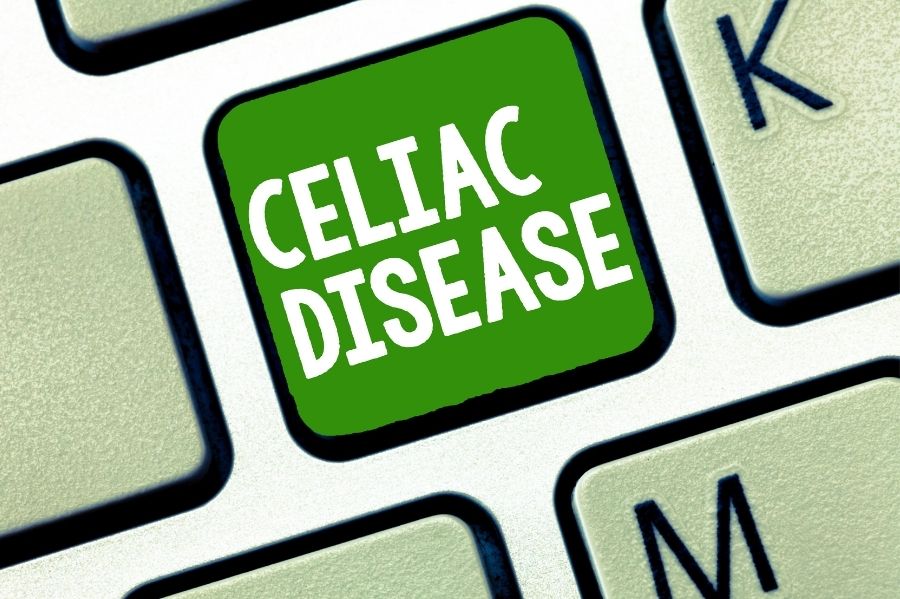Gluten-free diets have become very popular in the past decade but there is still a long way to go to spread general awareness and screening for gluten-related disorders like celiac disease and non-celiac gluten sensitivity (NCGS).
The connection between a women’s hormones and gluten is also frequently overlooked, even though the majority of people with celiac disease are women.
In this article, we’ll explore how gluten-related disorders can impact women’s health and fertility and what you can do about it.

Written by Guest Blogger: Maya Rose, MS, CNS is a nutritionist who helps women with celiac and has gluten sensitivity.
Gluten-Related Disorders:
Celiac disease is a hereditary, autoimmune disease while non-celiac gluten sensitivity or NCGS is a food sensitivity problem. People with celiac and NCGS experience similar symptoms such as digestive issues, brain fog, joint pain, fatigue, headaches, skin issues, and mood imbalances among others, and they also have similar effects on women’s hormones and fertility.
How Gluten-Related Disorders Affect Women’s hormones and fertility?
Undiagnosed or unmanaged gluten-related disorders can have a huge impact on women’s health. One of the most common issues is infertility. Research shows that women with celiac women are four times more likely to have at least one complication during pregnancy such as miscarriage, preterm birth, and intrauterine growth restriction compared to non-celiac women. For non-pregnant women, celiac has been associated with endometriosis, polycystic ovarian syndrome (PCOS), amenorrhea, and early menopause.
There are also studies that have discussed the connection between NCGS and women’s health issues and how it can result in infertility challenges.
Here are some of the main reasons for these complications.
Nutrient Deficiencies in Celiacs
Nutrient deficiencies are extremely common in women with celiacs that’s because the autoimmune process can cause damage directly to the small intestine where the nutrient absorption should normally occur.
The common nutrient deficiencies include vitamin D, B vitamins (especially B-12), vitamin K, calcium, iron, zinc, folate, and magnesium. All of these nutrients are necessary for general hormonal balance and pregnancy, both for the mother and the development of the growing baby.
These deficiencies do not only affect fertility but can also lead to other conditions such as anemia in the case of iron deficiency. This is common for women who are menstruating and losing large amounts of iron on a monthly basis.
Women with celiacs often struggle with fat malabsorption and healthy fats are essential building blocks of hormones and can help improve menstrual cycles, especially when it comes to PMS, cramping, and regular ovulation.
Gluten and Thyroid Health
Nutrient deficiencies can affect the thyroid. The thyroid gland is critical for hormonal balance. It releases its own set of hormones and regulates many vital processes in the body, including (but not limited to) metabolism, menstrual cycles, and even the growth and development of a baby’s brain in pregnancy.
Chronic Inflammation
Inflammation is very common for unmanaged celiac and NCGS. In case of inflammation, the immune system becomes over-stimulated and sends the message to the body that it is in “fight or flight” mode, which also triggers other processes, such as blood sugar, to become dysregulated. Which ultimately leads to even more inflammation!
Gluten-Related Disorders Disrupt the Gut
NCGS and celiac disease also creates disruptions in the gut microbiome and leaky gut (also known as intestinal permeability) lead to further immune activation, inflammation, and thyroid dysfunction.
Moreover, there is also a strong relationship between the health of the gut microbiome and female hormone balance, meaning that anything that negatively affects the gut will also impact our hormones.
All of these complications can be avoided and resolved by figuring out if you have an issue with gluten and removing it from your diet. if you are struggling with any women’s health issues and ESPECIALLY if you are planning to get pregnant the best first step is to test for gluten-related disorders ASAP.
Once women know if they have a gluten-related disorder, they can learn how to completely eliminate gluten, reverse nutrient deficiencies, heal their gut, lower inflammation, and improve their thyroid. Which can put the body in an optimal state for fertility.
Guest Blogger,
Maya Rose
Maya Rose, MS, CNS is a nutritionist who helps women with celiac and has gluten sensitivity. As a fellow celiac who used to struggle with digestive issues for so many years, she treats her clients with the empathy and specialized care she wishes she had received. She also takes a joy-based, non-dogmatic approach to nutrition and hopes to show others how nourishing and fulfilling a gluten-free life can be. Get her FREE Guide to Discover 10 Surprising Sources of Gluten HERE.https://hidden-gluten.gutrevivalnutrition.com/
P.S. Catch this week’s episode of The Hormone P.U.Z.Z.L.E Podcast –Gluten and Your Fertility- Why You Should Cut It with Maya Rose.
You can also find the episode on this podcast page as well as Spotify, and Stitcher.
Don’t forget to subscribe, follow, and write us a review on Apple Podcast (if you LOVE it).

